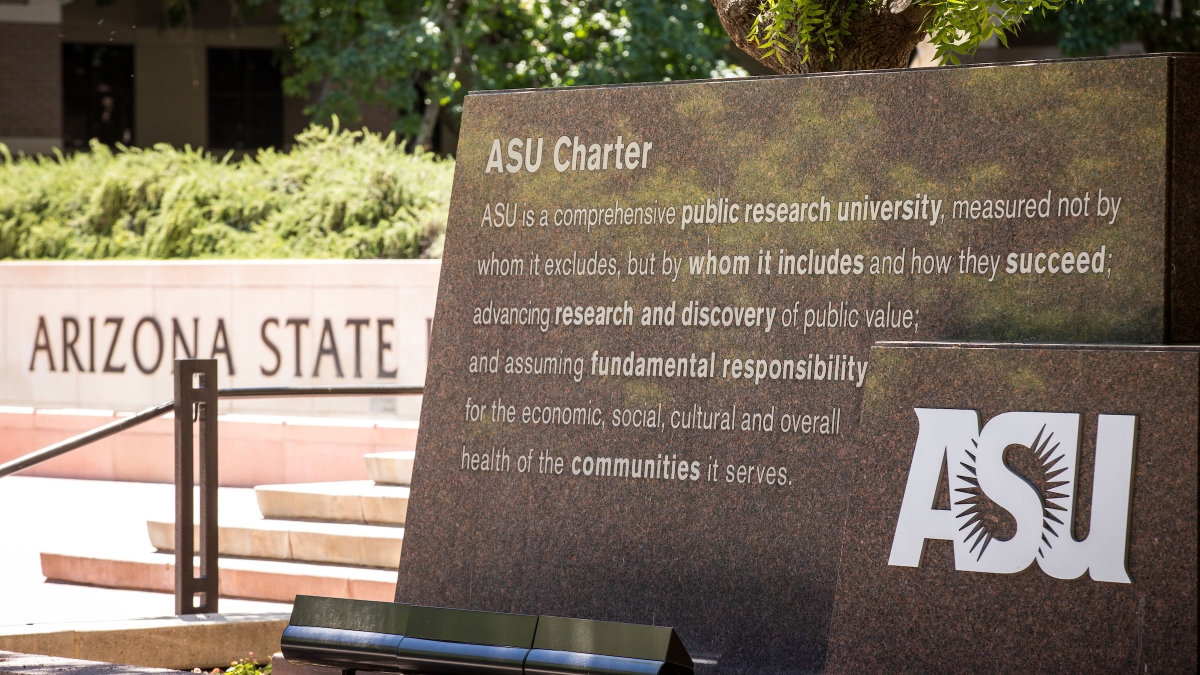ABOR awards WeGrad college preparedness program $500K grant

Photo by Charlie Leight/ASU News
For nearly two decades, Arizona State University’s WeGrad program (formerly the American Dream Academy) has supported thousands of learners and their families in navigating their way to or through college.
As of this spring, the program will be set to serve even more learners through a $500,000 grant from the Arizona Board of Regents that will support WeGrad in curriculum expansion, technology enhancements, and marketing and promotion. The grant is part of TRIF, or the Technology and Research Initiative Fund, given to the three Arizona state universities for attainment and college readiness for K–12 students.
WeGrad offers bilingual (English and Spanish) programming geared toward middle and high school students and their families, and it is designed to increase the number of first-generation Arizona students who are ready to enroll and succeed at ASU.
The additional funds will allow the program to expand both its geographical and digital reach, according to Sharon Smith, vice president of outreach partnerships for Educational Outreach and Student Services and former dean of students for the Downtown Phoenix campus.
“With this new funding, we'll be able to impact an additional 3,000 families over this year,“ she said. “We are very grateful to the Arizona Board of Regents for recognizing the good work that we've been doing for many years.”
Since 2006, WeGrad has served more than 65,000 families and 250 schools across the state, and it has delivered more than 1,200 programs impacting about 180,000 students from underserved and under-resourced areas. Smith said the grant will focus on offering content in more Arizona middle schools and improve access to parents statewide with a variety of modalities, including a newly available all-virtual option.
“Going to a digital format will allow us to increase our work in communities such as Yuma and in other rural and tribal communities around the state,” she said. “This really positions our families to engage with us in a greater way, and that's important as we consider how diverse our state is becoming.”
Currently, WeGrad offers two modalities: an eight-week classroom-based program and a hybrid version where parents attend the first and last weeks of the program in person with the remaining weeks offering digital, on-demand content. All options have been fully bilingual since the program’s inception, a fact that Smith is especially proud of.
“The grant allows us to build on an incredible foundation, especially in the work we’ve been doing with Spanish-speaking families,” she said.
The program’s success is measured by several indicators, including course participation and the percentage of participants who apply to ASU, are admitted and ultimately graduate. Smith and her team are tracking these metrics very carefully.
“We know that there's an impact,” she said. “Everything that we're doing has a broader impact for postsecondary consideration.”
The most crucial factor for first-generation student success, Smith said, is not just in early outreach, but including the entire family in the process.
“It's really looking at the family unit because we know the family unit plays a big role in a student’s decision to attend postsecondary institutions or not to attend them,” she said.
Sometimes parents who complete WeGrad even make the decision to go to college and continue their own academic pursuits in higher education. For Smith, this may be her biggest point of pride as the daughter of parents from the U.S. territory of Saint Thomas.
“Like so many first-gen families, my mom didn't necessarily know how to sort of get me from point A to B,” she said. “Fortunately, I had terrific teachers and mentors and community members along the way who encouraged me. So between a family and the village, I made that journey to getting my undergraduate degree, my master's degree and my doctorate.”
Smith said she is grateful for the opportunity to reach so many students who, like her, may not have made the leap into college without the community’s support.
“That's tremendous when you think about a program like this where we've been able to affect outcomes for students in Arizona, but also affect family outcomes,” she said. “Our goal is to reach as many parts of the state as possible.”
More Arts, humanities and education

ASU professor's project helps students learn complex topics
One of Arizona State University’s top professors is using her signature research project to improve how college students learn…

Award-winning playwright shares her scriptwriting process with ASU students
Actions speak louder than words. That’s why award-winning playwright Y York is workshopping her latest play, "Becoming…

Exceeding great expectations in downtown Mesa
Anyone visiting downtown Mesa over the past couple of years has a lot to rave about: The bevy of restaurants, unique local shops…

